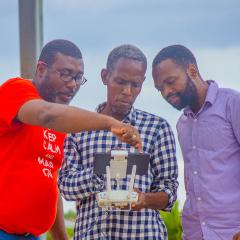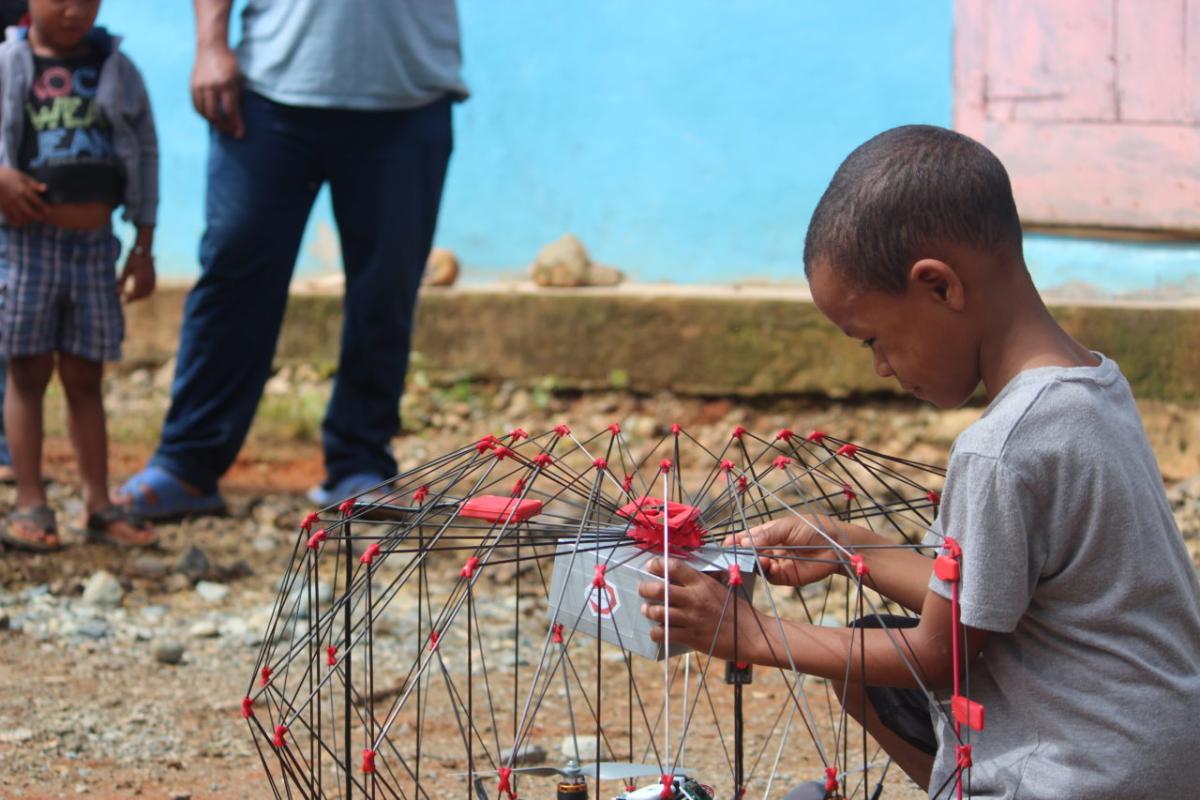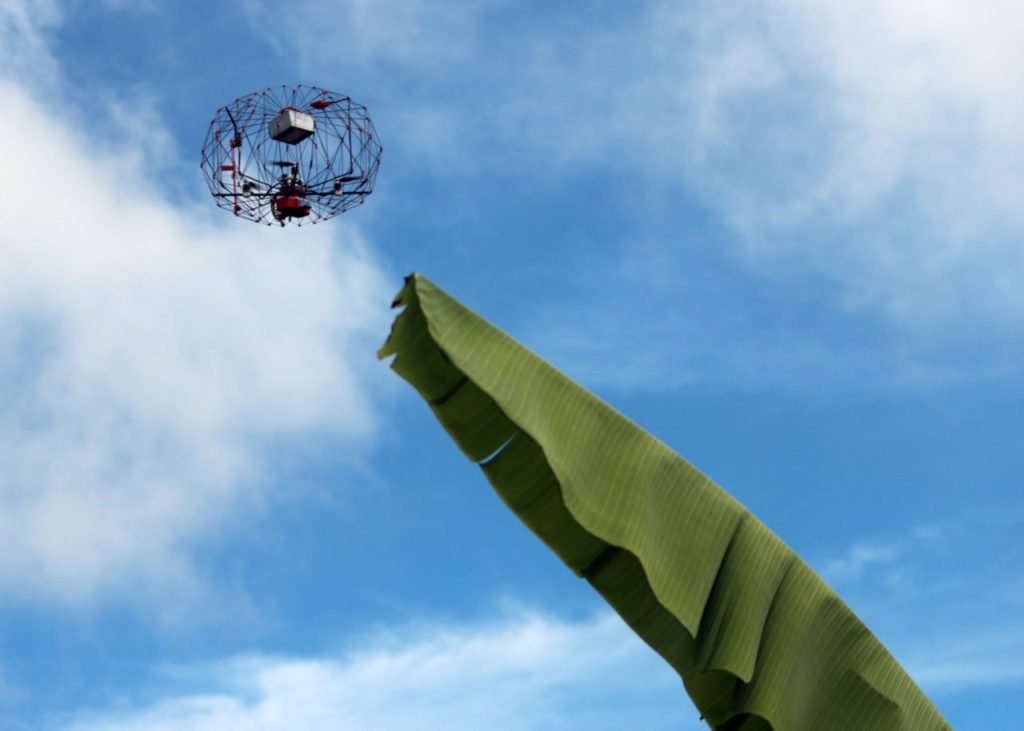
Testing Agile Cargo Drone Delivery to Improve Healthcare in the Dominican Republic
June 3rd, 2019

Hard-to-reach communities need more than paved roads to access healthcare. They need both affordable and convenient transportation to and from local healthcare providers. If it costs too much to get to the clinic, then they’ll never get to the clinic. If it takes too much time to get to the clinic, then they’ll never get to the clinic. Why? Because their choices are limited. They may be too sick to spend hours traveling back and forth to a clinic. They may not have the option of taking time off work or cannot afford to forgo the income. Or they may have family responsibilities that limit how long they can be away from home.
Hard-to-reach communities need more than paved roads to access healthcare. They need affordable and convenient transportation to and from local healthcare providers.
Discussions around the last mile typically focus on the challenge of delivering medicines to local healthcare facilities rather than caring for the patient directly. So what would totally agile, peer-to-peer cargo drone delivery look like?
Cargo drones that deliver medical supplies always follow predetermined routes. They transport medicines from one fixed point to another—regional hospitals to remote clinics, for example. But what if Community Health Workers (CHWs) need additional medicines while visiting remote communities? They may not know exactly what they need ahead of time or they’re unable to carry a wide range of medicines with them across rough terrain. Worse, what if CHWs aren’t available and patients have difficulty getting to the clinic or to the pharmacy?
While discussions around the use of cargo drones for medical deliveries typically focus on "long range" deliveries (100km+), smaller cargo drones can also play an important role in literal last-mile deliveries, the last 1,600 meters.
To explore this further, we invited our new technology partner, Dronistics, to join us and Dominican Republic Flying Labs in the remote mountains of Montasitos. Using large, long-range drones to make one-mile deliveries isn’t a good use of resources. These drones typically need more space to land and require pre-approved fixed-routes. In contrast, because Dronistics is more of a flying ball than a traditional drone, therefore can be safely operated and can deliver directly to individuals within a one-mile radius. This approach could help Flying Labs democratize cargo drone deliveries, enabling remote communities to both send and receive deliveries.
 Because Dronistics is more of a 'flying ball' than a traditional drone, they can deliver directly to individuals within a one-mile radius.
Because Dronistics is more of a 'flying ball' than a traditional drone, they can deliver directly to individuals within a one-mile radius.
This exploration in the Dominican Republic was the first time that Dronistics field tested their solution outside of Switzerland. They learned a lot from the experience and were very good about carefully documenting all of our feedback. Equally important, they were a great team player; very respectful of local partners and communities, humble, thoughtful and keen to learn. These human qualities are more important to us than any startup’s drone technology. As such, we’re already exploring further collaboration between Dronistics and several other Flying Labs around the world.
In the meantime, we sincerely thank the Municipality of Montasitos along with local communities for their time and their kind welcome. We also thank the Centro de Innovacion De Drones, Parque Cibernatico, Dronistics and Pfizer for their generous partnership and support on this project. We would also like to thank NCCR Robotics that supports Dronistics through an NCCR Robotics Spin Fund Grant.
To learn more about the use of cargo drones in public health, please see our dedicated online course on the topic. And explore previous cargo drone projects run by WeRobotics and Flying Labs. Note that the Dronistics flights in the DR were for demo and exploratory purposes only, no official deliveries were made.
Recent Articles

